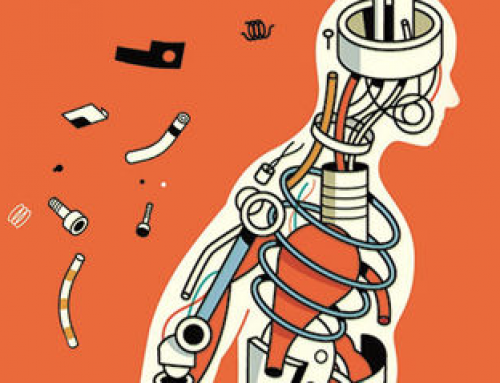Someone once said, if you follow your passion you’ll never work a day in your life. This doesn’t mean that work is a rude word – it just means you see it in a different light when it means something – to you.

Whichever political party you listen to right now they will be promising to provide lots of $$$$ to train people for all the jobs they’re going to create. This is going to address all our issues of unemployment, disenfranchisement, and inequality, and lead us to the ‘new normal’ or even transform our society.
The problem is, however it’s dressed up, this is still industrial era thinking.
Problem 1: Governments don’t create jobs – businesses do
Problem 2: Businesses don’t do jobs – people do
However the main problem is so many people are in the wrong job and business owners and managers are too! Why? Because they’re all working for the same wrong reason – to make enough $$$$ to buy food and other stuff.
Before too long, people who get a job to survive (workers), start thinking about trying to find better work-life balance. They complain about
hours and conditions and how bosses only care about bottom lines. They complain they aren’t listened to even when they have an idea that could benefit both them and the owners of the business they work for – get it? Work “for” not “in” or “with”.
In the same vein, nearly every business owner I meet, talks about trying to find better work-life balance. Business is risky and stressful. It involves long hours. Employing staff is a challenge. Business owners and managers complain about all the people problems they have to put up with. People getting sick, having babies, having personal problems, being lazy, wanting more time off (better work-life balance) – being human!
All this, they say, is the pain they bear so they can make enough $$$$ to buy food and other stuff.
Perhaps this is because their businesses are started with the sole intent of generating wealth ie. making a pre-ordained ‘acceptable’ return on investment (ROI), as opposed to developing an innovative idea, passion or talent. When this is the case, the outcome is often to make or sell stuff that people don’t really need, or is already being done by someone else. All this achieves is to feed the consumer economy and for businesses to be staffed by people who don’t want to be there.
Is this a recipe for the transformation of our society and the solution to inequality? If we just train people to do jobs we create for them in advance and that they do only to make $$$$, as well as invest in businesses that operate only for the purpose of making $$$$, then we’ll continue to hear the whining of the (industrial) engines, “ROI, ROI, ROI.” “Work-life, work-life, work-life.”
What if we could create an environment where businesses were owned and staffed by entrepreneurs, innovators, creatives, talented craftspeople, skilled operators – dedicated, passionate people instead of ‘workers’.
We are told most of the jobs the next generation will do haven’t been invented yet. Perhaps they should be the people that invent them?
Imagine a society where we devoted resources to helping people, whatever their background, identify and develop their real talents and aptitudes and discover their field of work? Then, enabling the learning they need to continuously progress, designing their ‘job’ as they go. They would access the ‘training’ they needed as they went, just-in-time instead of just-in-case. The research is very clear, at least 70% of our work-related learning is on the job, not in training classes or institutions – all these can do is prepare us for the world of learning in the field. In this future, work is life, life is work – and it’s fun!. Perhaps what we should be helping people train for, is finding this balance? The key then, is finding people to do this kind of learning work. This itself isn’t work-life – it’s a way of life.
As Abraham Lincoln is quoted as saying, “Whatever you are, be a good one”.






Leave A Comment